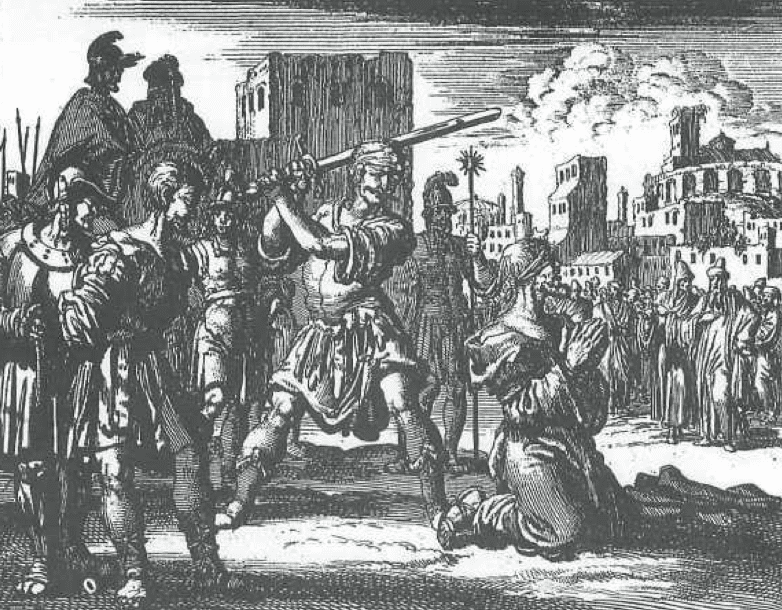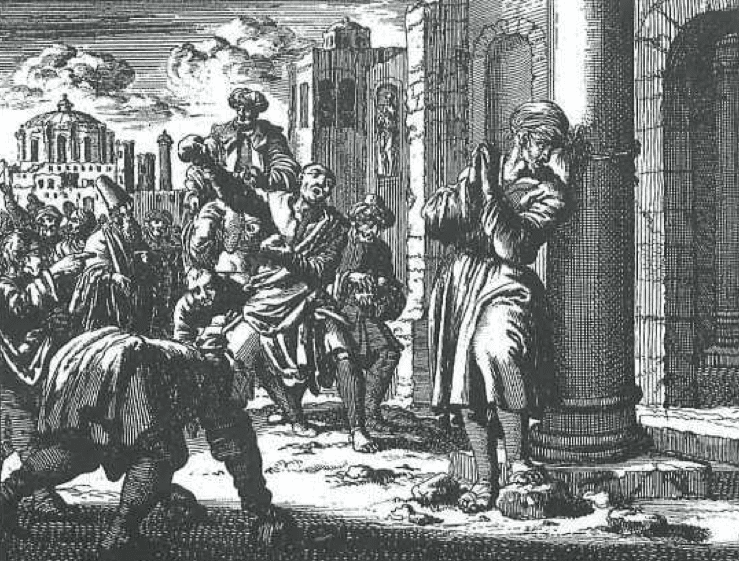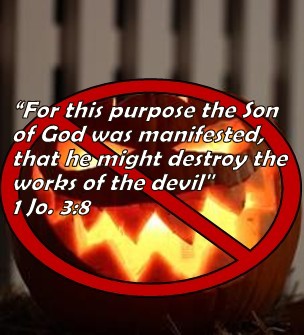
“Now therefore ye are no more strangers and foreigners, but fellow citizens with the saints, and of the household of God; and are built upon the foundation of the apostles and prophets, Jesus Christ himself being the chief corner stone” (Ephesians 2:19–20).
When Adam and Eve sinned, their sin separated them from God. Our heavenly Father no longer walks with us “in the cool of the day” like He did in the Garden of Eden. But we are convinced, just as much as Adam and Eve, that God exists and that we will see Him after death.
How do we know there is a God when we cannot even see Him? The Bible says that faith is “the substance of things hoped for, the evidence of things not seen” (Hebrews 11:1). By faith we believe in God—the Father, the Son, and the Holy Spirit.
Ever since Creation, the children of God have lived by faith. By faith they “subdued kingdoms, wrought righteousness, obtained promises, stopped the mouths of lions, quenched the violence of fire, escaped the edge of the sword, out of weakness were made strong, waxed valiant in f ight, turned to flight the armies of the aliens” (Hebrews 11:33–34). “By faith Abel offered unto God a more excellent sacrifice than Cain. . . . By faith Enoch was translated that he should not see death” (Hebrews 11:4–5). By faith Noah prepared an ark. By faith Abraham attained the righteousness of God and received the promise of a Savior.
Many prophets and faithful believers in God died for their faith before the coming of Jesus Christ, “the author and finisher of our faith” (Hebrews 12:2). But in this lesson we will study only the examples of Jesus and His first followers.
Jesus Christ, an example of faithfulness. Even though Jesus was God the Son, He lived on this earth as a man. He needed great faith, firmly based in the works of God, His Father, to bear the temptations and insults He faced here. But He never sinned. His own family and His own people rejected Him. The Jewish leaders hated and persecuted Him throughout His ministry. In the end they incited the Romans to condemn Him to death and to nail Him to the cross. But Jesus never doubted. By faith He fixed His eyes on “the joy that was set before him.” By faith He brought eternal salvation for us and “is set down at the right hand of the throne of God” (Hebrews 12:2).
Stephen, the deacon. Stephen, the first Christian martyr, died full of faith and the Holy Ghost. His powerful message convinced the unbelieving Jews of their sin. They became enraged and gnashed on him with their teeth. They yelled. Finally they cast him out of the city to stone him. But Stephen saw the heavens opened. He saw Jesus Christ standing on the right hand of God. Like Jesus, Stephen forgave his murderers.
The apostle James the son of Zebedee. Shortly after the founding of the church, King Herod beheaded James (Acts 12:1–2).

The apostle James (the greater) the son of Zebedee beheaded in Jerusalem, a.d. 45.
The apostle Philip. Philip received the Holy Spirit on the day of Pentecost with James and the other apostles, and helped establish the church at Jerusalem. After this the Lord called him to preach the Gospel in Syria and the Middle East. He planted the seed of faith in many cities. In Hierapolis (in Turkey) he clashed with an anti-Christian sect called the Ebionites. These folks tied his neck to a column and stoned him in the year a.d. 54.

In what is now Turkey, the apostle Philip was stoned by the Ebionites, a sect that denied the divinity of Christ. His body was buried in the city of Hierapolis. His spirit rests with God.
—Martyrs Mirror, pages 73–74
James, the brother of Jesus. This James was bishop of the church at Jerusalem for thirty years. He was called “The Just” because of his character and example. He was a man of much prayer. By the order of Ananias the high priest, he was thrown down from the pinnacle of the temple. Then he was stoned and beaten to death with sticks.
Barnabas, Paul’s companion. After serving faithfully with Paul, Barnabas returned to his homeland, the island of Cyprus, to encourage the church there. Because of his faithful testimony and the evangelistic work he was doing on the island, he was dragged from the city where he lived, and burned alive at the stake.
Mark, the Gospel writer. Mark not only helped Paul on various occasions but also went to prison with the apostle. He was also Peter’s friend and wrote the Gospel of Mark according to what Peter told him. Peter sent him to Egypt where he preached until pagans dragged him through the streets of Alexandria with hooks and ropes until he died.
The apostle Peter. Peter appears to have been the most outspoken apostle. He was very active in the early church. By his mouth came the powerful, heart-gripping sermon on the day of Pentecost. Though at first he preached primarily to the Jews, the Holy Spirit revealed to him that the Gospel was for the Gentiles also. After faithfully preaching the Word for thirty-seven years, Peter was sentenced by Emperor Nero to be crucified. Feeling unworthy of dying like his Lord, he requested to be crucified upside down. Thus he died a very painful death at seventy years of age.
The apostle Paul. Paul was an educated Jew, a strict Pharisee, and a persecutor of the church. He was converted when he was traveling toward Damascus to capture some Christians. He founded many churches. He was probably persecuted more than any of the other apostles. Roman government officials beheaded him at Rome by command of Emperor Nero.
Some of Paul’s companions. Although we do not know for sure how each of these died, we do know that the following were killed for the cause of Christ: Epaphras, Aquila and Priscilla, Andronicus, Junias, and Silas. Aristarchus was put to death by the Roman emperor Nero. Onesiphorus and his co-worker Porphyrius were tied to wild horses and dragged to death.
The apostle Andrew. Andrew preached in many places. As an apostle he did many notable signs. He was finally crucified in the city of Patras, Greece. He hung three days on the cross exhorting the believers.
The apostle Bartholomew. Bartholomew carried the Gospel of Matthew to India where he taught it to the Indians in their native language. He brought many idolaters to Christ through his life of faithful service. The pagans tortured him, beat him with rods, nailed him to a cross upside down, and flayed him. They finally cut off his head with an axe.
The apostle Thomas. Thomas preached in Iran, India, Ethiopia, and many other countries. He dreaded taking the Gospel to the savage peoples of the eastern part of India, but God strengthened him. In that strength he went, and many were converted to God. His preaching angered the priests and the king of those savage tribes. They tortured Thomas with red-hot plates, then cast him into a glowing furnace where they pierced him with spears until he died.
The apostle Matthew (Levi), the Gospel writer. After writing his Gospel, Matthew traveled to Ethiopia, a country in Africa. Although he was a Jew and ministered to the Jews of that place, God helped him present the same message to the native Africans as well. Aeglippus, an Ethiopian king, protected Matthew. But when Aeglippus died, Hytacus, a cruel tyrant, took his place. Hytacus persecuted the church and killed Matthew. He was first nailed to the ground and then beheaded.
The apostle Simon Zelotes and his brother Judas Thaddeus. Simon Zelotes traveled and preached in Egypt, Lybia, and Mauritania. Some historians think he may have reached some of the islands of Great Britain. He was crucified by a Syrian governor.
Judas Thaddeus wrote the epistle of Jude to comfort and admonish the believers. He traveled and preached in Mesopotamia, Syria, Arabia, and Turkey. Finally, when he denounced paganism in Persia (Iran), he was beaten to death by idolatrous priests.
Matthias, the apostle who took Judas’ place. After spending some time in Judea, Matthias traveled to the interior of Africa, where many were converted to the truth. He then returned to preach in Judea, Samaria, and Galilee. Here he was crucified, stoned, and beheaded.
Luke, the writer of a Gospel and the Book of Acts. Luke was a Syrian doctor and a faithful companion of Paul. He suffered many of the same persecutions as Paul. Finally, after he had preached many years in Greece, the ungodly hanged him from an olive tree.
Antipas. Christ recognized the faithful testimony of Antipas when He told the angel of the church of Pergamos, “I know thy works, and where thou dwellest, even where Satan’s seat is: and thou holdest fast my name, and hast not denied my faith, even in those days wherein Antipas was my faithful martyr [italics ours], who was slain among you, where Satan dwelleth” (Revelation 2:13). Some ancient writers maintain that Antipas was enclosed in a red-hot, brazen ox, where he was burned alive.
The apostle John. As an evangelist to the Roman provinces, John faced much tribulation. Once he was thrown into a vat of boiling oil, but God preserved his life. He was banished to the isle of Patmos but was later brought back to the mainland. Then he was compelled to drink poison, but remained unharmed. He died a natural death at Ephesus when he was more than eighty years old.
Content used by permission. Bible Correspondence Course: Faith Worth Dying For by Dallas Witmer
© 1994 Lamp and Light Publishers, Inc. All rights reserved
Lamp and Light Publishers, Inc. 26 Road 5577 Farmington, New Mexico 8740







